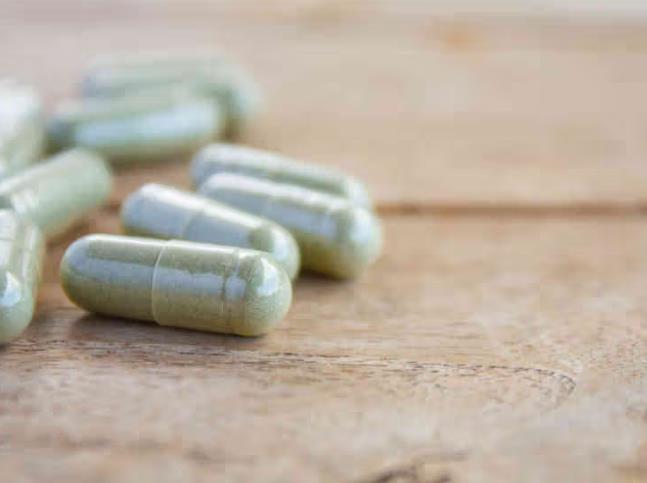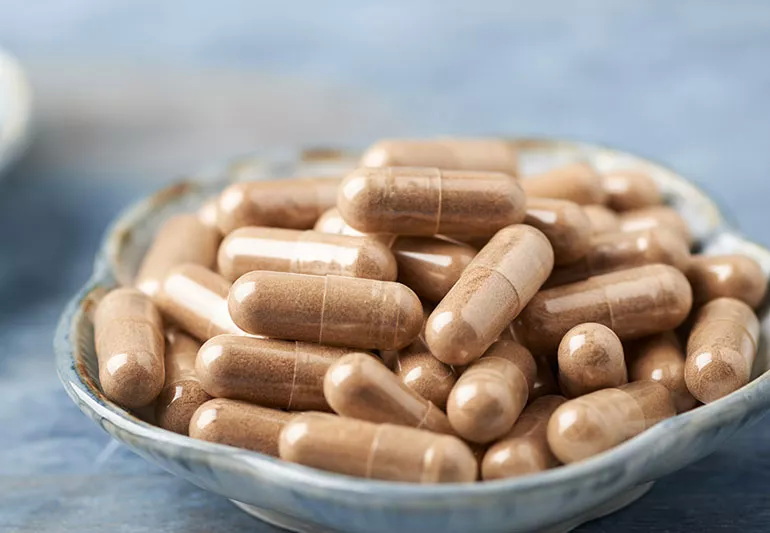Content Menu
● Understanding Green Tea Extract
● The Shelf Life of Green Tea Extract
● Potency and Effectiveness
● Safety Concerns
● Potential Risks of Green Tea Extract
● Proper Storage and Handling
● When to Discard Green Tea Extract Capsules
● Alternatives to Expired Green Tea Extract
● Regulatory Considerations
● The Importance of Informed Consumption
● Conclusion
● Frequently Asked Questions
>> 1. Can expired green tea extract capsules make you sick?
>> 2. How long do green tea extract capsules typically last?
>> 3. What are the signs that green tea extract capsules have gone bad?
>> 4. Are there any special storage requirements for green tea extract capsules?
>> 5. What should I do with expired green tea extract capsules?
● Citations:
Green tea extract has become increasingly popular as a dietary supplement, touted for its potential health benefits ranging from weight loss to antioxidant properties. However, as with any supplement, questions arise about its safety and efficacy, especially when it comes to expired products. This article will explore the safety of expired green tea extract capsules, delving into the potential risks, benefits, and considerations for consumers.

Understanding Green Tea Extract
Green tea extract is a concentrated form of green tea, typically available in capsules or powder form. It contains high levels of polyphenols, particularly catechins, which are known for their antioxidant properties[1]. The most abundant and well-studied catechin in green tea is epigallocatechin gallate (EGCG), which is believed to be responsible for many of the extract's health benefits[1].
The Shelf Life of Green Tea Extract
Like most supplements, green tea extract capsules come with an expiration date. This date is typically set by the manufacturer to indicate the period during which the product is expected to remain at its highest quality and potency. However, it's important to note that the expiration date doesn't necessarily mean the product becomes unsafe or completely ineffective immediately after this date[2].
Potency and Effectiveness
As time passes, the potency of green tea extract may decrease. A study on commercial green tea products showed that after six months, there was an average loss of 32% of catechin antioxidants[8]. This decline in potency means that expired green tea extract capsules may not provide the full benefits you're seeking.
Safety Concerns
While taking expired green tea extract capsules is unlikely to cause immediate harm, there are some potential risks to consider:
1. Bacterial Growth: Over time, especially if not stored properly, supplements can become contaminated with bacteria. This risk increases after the expiration date[2].
2. Chemical Changes: The compounds in green tea extract may break down or change over time, potentially altering their effects on the body[2].
3. Increased Risk of Side Effects: As the product degrades, there's a possibility that it could cause more side effects or interact differently with medications.
Potential Risks of Green Tea Extract
Even when not expired, green tea extract can pose certain risks, particularly when consumed in high doses:
1. Liver Toxicity: There have been reports of liver damage associated with green tea extract consumption. In 2021, a 47-year-old man developed liver toxicity from over-the-counter green tea extract capsules[7].
2. Caffeine Sensitivity: Green tea extract contains caffeine, which can cause side effects like insomnia, nervousness, and increased heart rate in sensitive individuals[9].
3. Interactions with Medications: Green tea extract can interact with various medications, including blood thinners and certain antidepressants[1].
Proper Storage and Handling
To maintain the quality and safety of green tea extract capsules, proper storage is crucial:
1. Keep in a Cool, Dry Place: Avoid storing supplements in humid environments like bathrooms or kitchens[2].
2. Protect from Light: Some vitamins, including those in green tea extract, can degrade when exposed to light[2].
3. Use Original Container: Keep the capsules in their original container, which is designed to protect them from environmental factors[2].
When to Discard Green Tea Extract Capsules
While expired capsules may not be immediately harmful, it's generally recommended to discard them if:
1. The expiration date has passed by more than a few months.
2. The capsules have an unusual odor or have changed color[2].
3. The container shows signs of moisture or contamination.

Alternatives to Expired Green Tea Extract
If you find yourself with expired green tea extract capsules, consider these alternatives:
1. Fresh Green Tea: Brewing a cup of green tea can provide similar benefits without the risks associated with concentrated extracts[1].
2. Other Antioxidant-Rich Foods: Incorporate foods like berries, dark chocolate, and leafy greens into your diet for antioxidant benefits.
3. Consult a Healthcare Professional: Discuss alternative supplements or lifestyle changes that can help you achieve your health goals.
Regulatory Considerations
It's important to note that dietary supplements, including green tea extract, are not subject to the same rigorous regulations as prescription medications. The FDA does not require vitamin and dietary supplement manufacturers to include an expiration date on the packaging[2]. This lack of standardization can make it challenging for consumers to make informed decisions about supplement use.
The Importance of Informed Consumption
Given the potential risks and benefits associated with green tea extract, it's crucial for consumers to make informed decisions:
1. Read Labels Carefully: Pay attention to dosage instructions and any warnings on the product label[7].
2. Consult Healthcare Providers: Discuss supplement use with your doctor, especially if you have pre-existing health conditions or are taking medications[7].
3. Be Aware of Symptoms: If you experience any unusual symptoms while taking green tea extract, discontinue use and seek medical attention[1].
Conclusion
While expired green tea extract capsules may not pose an immediate danger, their safety and efficacy cannot be guaranteed. The potential loss of potency and increased risk of contamination make it advisable to replace expired supplements with fresh ones. Moreover, the risks associated with green tea extract, even when not expired, highlight the importance of careful consideration and consultation with healthcare professionals before use.
As with any dietary supplement, moderation and informed use are key. While green tea extract may offer potential health benefits, it's not a miracle solution and should be part of a balanced approach to health and wellness. Always prioritize safety and consult with healthcare professionals when in doubt about supplement use.

Frequently Asked Questions
1. Can expired green tea extract capsules make you sick?
While it's unlikely that expired green tea extract capsules will cause immediate illness, there is an increased risk of bacterial contamination and reduced efficacy. It's best to avoid using supplements past their expiration date to ensure safety and effectiveness.
2. How long do green tea extract capsules typically last?
The typical shelf life for vitamins and supplements, including green tea extract capsules, is about two years. However, this can vary depending on the specific product and storage conditions. Always check the expiration date on the package.
3. What are the signs that green tea extract capsules have gone bad?
Signs that green tea extract capsules may have gone bad include an unusual odor, changes in color, or visible signs of moisture or mold in the container. If you notice any of these signs, it's best to discard the product.
4. Are there any special storage requirements for green tea extract capsules?
Green tea extract capsules should be stored in a cool, dry place away from direct sunlight. Avoid storing them in humid environments like bathrooms or kitchens. Keeping them in their original container can also help maintain their quality.
5. What should I do with expired green tea extract capsules?
Expired green tea extract capsules should be disposed of properly. Don't flush them down the toilet or throw them in the trash. Instead, mix them with used coffee grounds or cat litter, seal the mixture in a bag, and then dispose of it in the trash. Some communities also have medication take-back programs for safe disposal.
Citations:
[1] https://www.canada.ca/en/health-canada/services/drugs-health-products/medeffect-canada/safety-reviews/green-tea-extract-containing-natural-health-products-assessing-potential-risk-liver-injury.html
[2] https://www.healthline.com/health/food-nutrition/do-vitamins-expire
[3] https://my.clevelandclinic.org/health/drugs/20553-green-tea-oral-dosage-forms
[4] https://www.youtube.com/watch?v=vc-MXYKFqks
[5] https://www.youtube.com/watch?v=A7tjlpYdUGU
[6] https://www.alamy.com/stock-photo/green-tea-extract.html
[7] https://www.bannerhealth.com/newsroom/press-releases/green-tea-extract
[8] https://www.newhope.com/industry-insights/an-expiration-date-on-green-tea-s-antioxidants-
[9] https://www.youtube.com/watch?v=eMuE16vLV_s
[10] https://www.youtube.com/watch?v=bnymrJZQY40
[11] https://www.istockphoto.com/de/bot-wall?returnUrl=%2Fde%2Fphotos%2Fgreen-tea-extract
[12] https://pmc.ncbi.nlm.nih.gov/articles/PMC3746392/






























